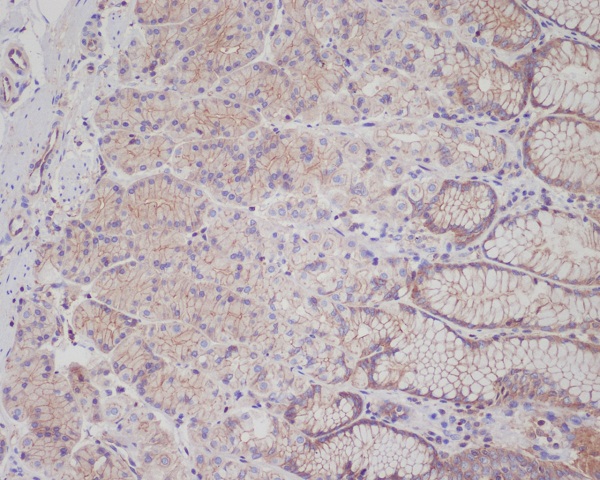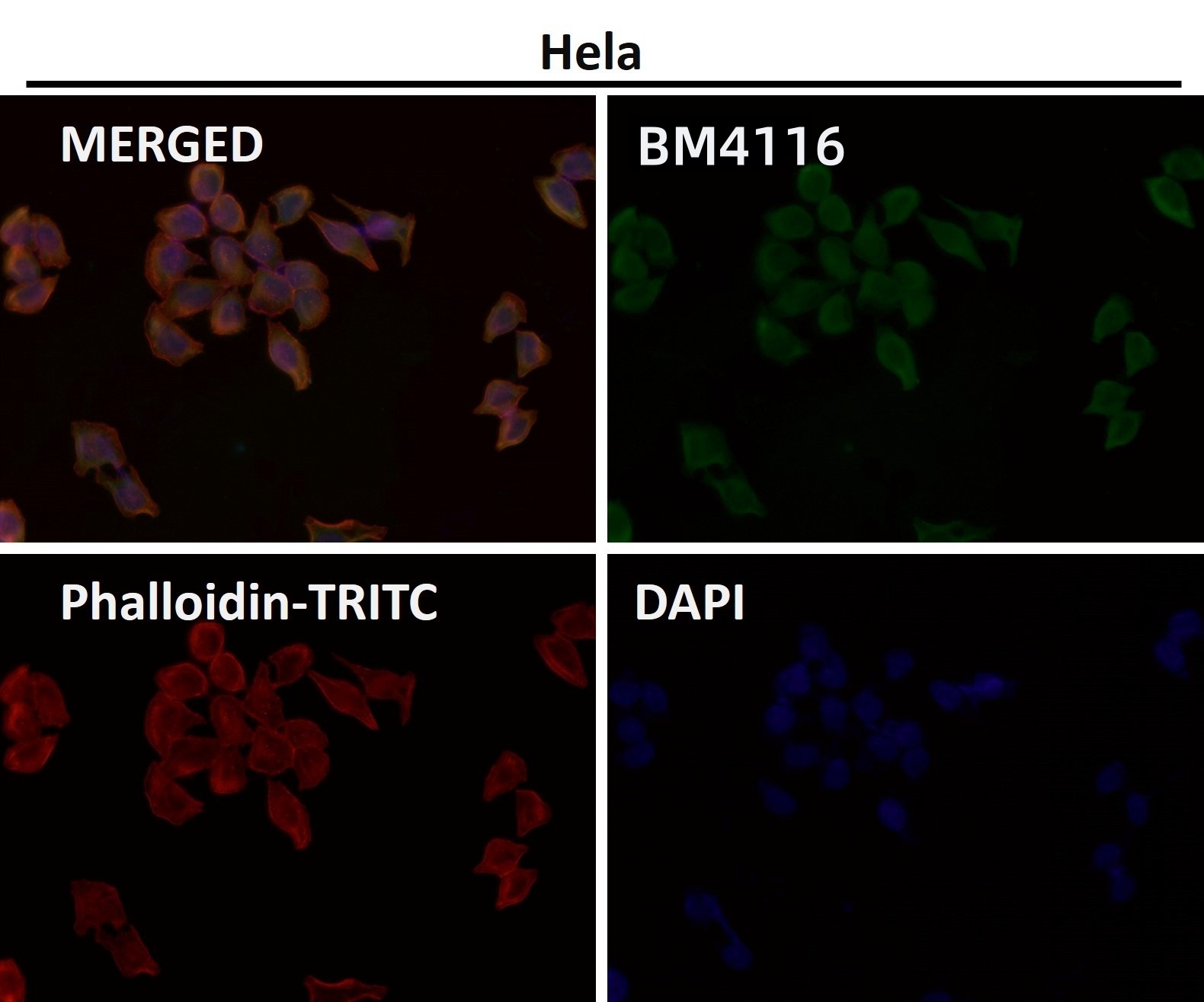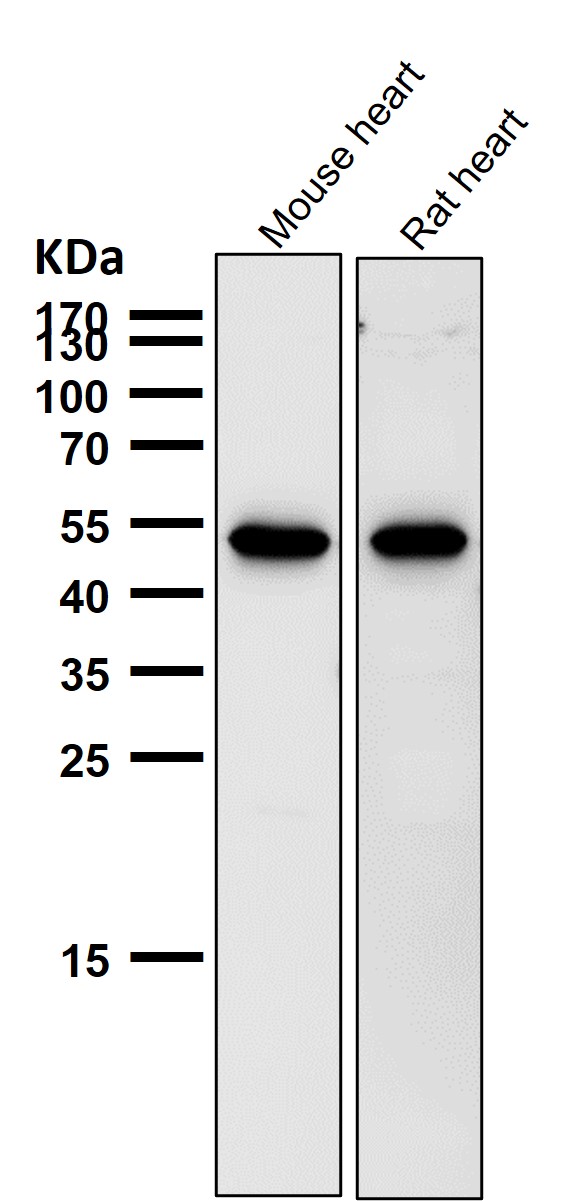产品名称
Anti-c-Met/MET Antibody (Clone#BFA-13)
规格/价格
50μl/1280 100μl/2180 150μl/2800
指标别称
AUTS9; c-Met; c-Met (Cytoplasmic); HGF receptor; HGF/SF receptor; HGFR; MET; Proto oncogene c Met; RCCP2; Scatter factor receptor; SF receptor; Tyrosine protein kinase Met
应用范围
WB, IHC, ICC/IF, FCM
免疫原
A synthesized peptide derived from human Met (c-Met)
成分
500 ug/ml; Rabbit IgG in phosphate buffered saline, pH 7.4, 150mM NaCl, 0.02% sodium azide, 0.4-0.5 mg/ml BSA and 50% glycerol.
纯化方式
Affinity-chromatography
保存条件
12 months from date of receipt,-20℃ as supplied. 6 months 2 to 8℃ after reconstitution. Avoid repeated freezing and thawing.
背景资料
c-Met, also called MET and hepatocyte growth factor receptor (HGFR), is a protein that in humans is encoded by the MET gene. It is mapped to 7q31.2. The protein possesses tyrosine kinase activity. MET is a membrane receptor that is essential for embryonic development and wound healing. It induces several biological responses that collectively give rise to a program known as invasive growth. MET is deregulated in many types of human malignancies, including cancers of kidney, liver, stomach, breast, and brain. Normally, only stem cells and progenitor cells express MET, which allows these cells to grow invasively in order to generate new tissues in an embryo or regenerate damaged tissues in an adult. However, cancer stem cells are thought to hijack the ability of normal stem cells to express MET, and thus become the cause of cancer persistence and spread to other sites in the body.
文献引用格式
c-Met/MET Antibody (Clone#BFA-13) (Boster Biological Technology, Wuhan, China. Catalog#BM4116)
应用释义
WB-蛋白质免疫印迹法; IHC- 免疫组织化学法; ICC/IF-免疫细胞荧光和免疫细胞化学; FCM-流式细胞术; ELISA-酶联免疫吸附测定; IP-免疫沉淀法; IF-免疫组织荧光法; ChIP-染色质免疫沉淀法;
基因名全称
Hepatocyte growth factor receptor
推荐稀释比
| Western blot (WB): | 1:500-2000 |
| Immunohistochemistry (IHC): | 1:50-200 |
| Immunocytochemistry/Immunofluorescence (ICC/IF): | 1:50-200 |
| Flow Cytometry (FCM): | 1:50 |
















